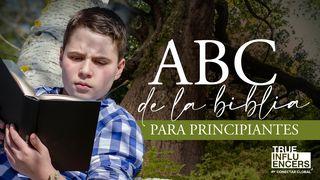Discerning Prophecy And End-Time Signs Muestra

What Makes a Prophecy Valid?
Revelation and prophecy are two types of anointing from the Holy Spirit that will prepare the way for the second coming of Christ. The prophets of the Old Testament prepared the way for Jesus’ first coming, and the apostles and prophets of the church today will help prepare the way for His second coming. They will reveal essential truths from God, just as the apostles and prophets in the first century helped the early church to understand the fullness of the gospel: “Which in other ages was not made known to the sons of men, as it has now been revealed by the Spirit to His holy apostles and prophets” (Ephesians 3:5).
God has given to apostles and prophets the ability to interpret the times and seasons in which we are living, and we need them as much as any other ministry of the church. Without them, we cannot apprehend God’s mysteries and counsel, which would otherwise remain hidden. The Holy Spirit is raising apostolic and prophetic voices to announce the appearing of Jesus Christ, bringing revelation to believers and preparing them to be the remnant that will usher in His coming.
A revelational prophecy isn’t just any word that predicts the future. We must be careful because many voices are rising today to bring confusion and disbelief among believers and people in the world. For a prophecy to be valid, it must truly come from God. But how can we know that something we hear actually comes from Him? There are three indisputable bases for recognizing a true prophetic word: the Scriptures, the Holy Spirit, and the feasts of the Lord.
The Scriptures
We know that God’s Word has yet to be fulfilled in its entirety, which gives the Scriptures their continuing prophetic nature. Whenever a prophecy in the Word is fulfilled, that aspect of the Bible becomes history. (See 2 Peter 1:19)
The prophetic aspect of the Scriptures is everything that has to do with God’s promises and prophecies for the future. Everything the Bible announces that has not yet been fulfilled is something we should expect and look for. Jesus said, “Behold, I am coming quickly! Blessed is he who keeps the words of the prophecy of this book” (Revelation 22:7).
We can know that an end-time prophecy comes from God if it affirms the second coming of Christ while meeting other biblical tests of authenticity (see, for example, 1 John 4:1–3) and challenges the church to prepare. God is still speaking, and significant portions of what He has foretold in the Bible are yet to be seen and fulfilled.
The Holy Spirit
The Holy Spirit reveals the “deep things of God” (1 Corinthians 2:10) and works out the Lord’s original intentions. “However, when He, the Spirit of truth, has come, He will guide you into all truth; for He will not speak on His own authority, but whatever He hears He will speak; and He will tell you things to come” (John 16:13). The Spirit is revealing the mysteries of the end times now more than ever. I want to emphasize again that without the revelation of the Holy Spirit, we can have no clear guidance about what to do and how to do it in these times.
We need to understand that in our relationship with God, everything begins with “pre.” He predetermined His plans for the earth, “declaring the end from the beginning” (Isaiah 46:10). He predestined us “to be conformed to the image of His Son” (Romans 8:29). He preordained us “for good works, which God prepared beforehand that we should walk in them” (Ephesians 2:10). Thus, our destiny is not something that just happens. God predestines everything from the very beginning. We require the Holy Spirit’s revelation to understand our purpose and destiny and walk in it. Only then can we find meaning in what is happening around us.
The Feasts of the Lord
The feasts of the Lord mentioned in the Bible enable us to recognize true prophecy by showing us God’s timetable in the last days. One of the Hebrew words for “feast” is moed, which means “an appointment,” or “a fixed time or season.”
The Jews believe that major events in history are marked by the times of the feasts. For example, they commemorate the “birthday of the world,” the day of the creation of Adam and Eve, at Rosh Hashanah, which is also the Jewish New Year. God gave the law to Moses at Mount Sinai at the time of Pentecost. The major events in Christ’s redemption of humanity are tied to three main feasts: Passover, Pentecost, and Tabernacles. Jesus had to die during the feast of Passover. He could not have died at any other time because He is the sacrificial Lamb given for the sins of the whole world. The outpouring of the Spirit, whom Jesus said the Father would send in His name, occurred at Pentecost. And the feast of Tabernacles is related to Jesus’ second coming.
Our current calendar systems have their everyday uses, but they are not helpful for discerning spiritual seasons or pointing to the prophetic time we are currently in. The feasts of the Lord can enable us to truly understand God’s timetable. Not all the feasts have been completely fulfilled, but they will be. God’s times have been established for eternity; they do not change. And the feasts reveal His eternal purposes. Without the revelation of these feasts, we will remain blind to those purposes. We must return to recognizing their importance and seeking to understand them.
In a later devotional, we will discuss the significance of the feast of Tabernacles in relation to Jesus’ appearing. Next, we will look at various applications of biblical end-time prophecy.
Acerca de este Plan

Christians have various interpretations of the end times. Yet all believers have the hope of Christ’s return, and we are called to discern the times and anticipate His coming. This plan will help you recognize the spiritual season we are living in. This is not a time to sit on the sidelines. We need to understand biblical prophecy, identify end-times signs, and prepare for God’s final plans for the earth.
More
Planes relacionados

ABC De La Biblia Para Principiantes

ABC De La Oración ... Para Principiantes.

Y...¡Adoremos!

Disciplinas Espirituales

¡Levántate! 7 Claves Para Levantarte Y Seguir.

La Gracia. 7 Claves Para Vivir en Plenitud.
Marcas De Un Discípulo

Que El Mundo Crea

Chispas De Aquí Y De Allá
